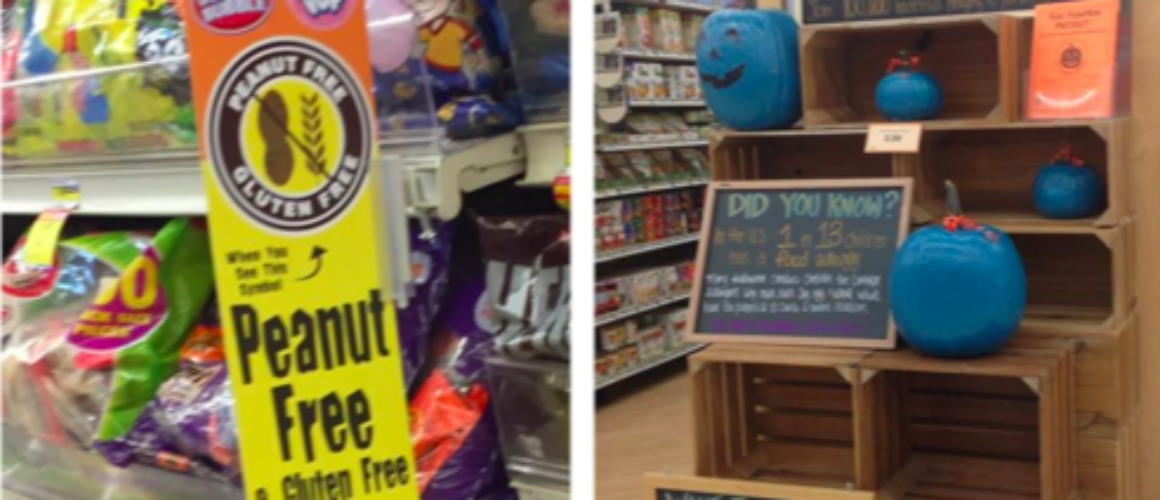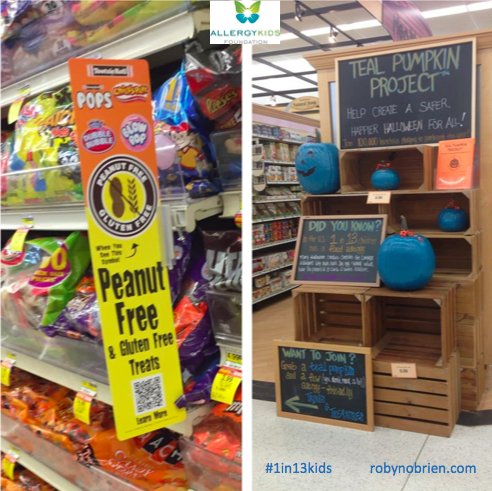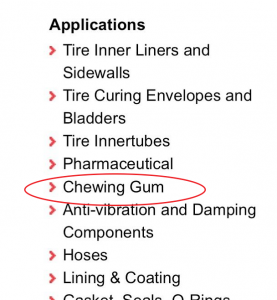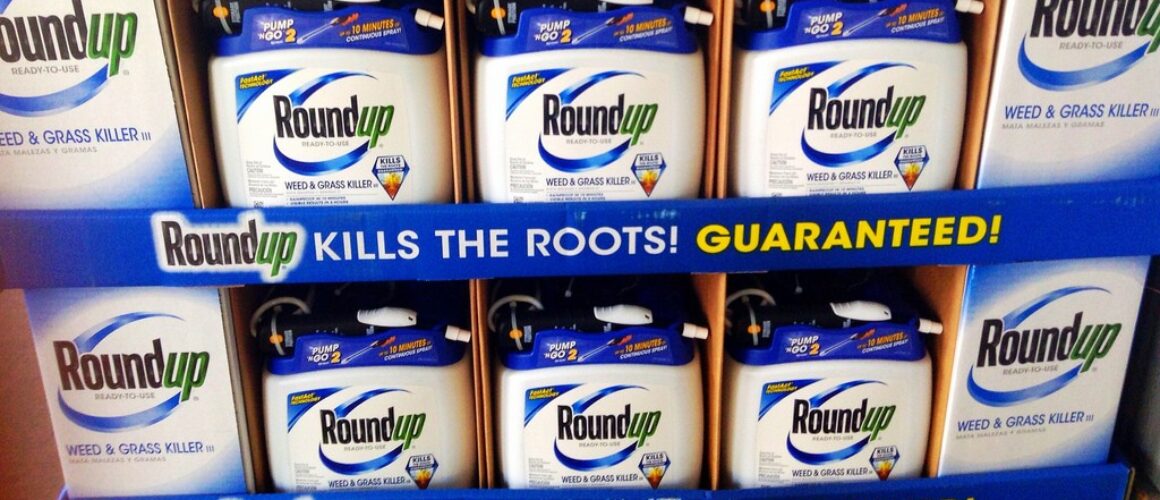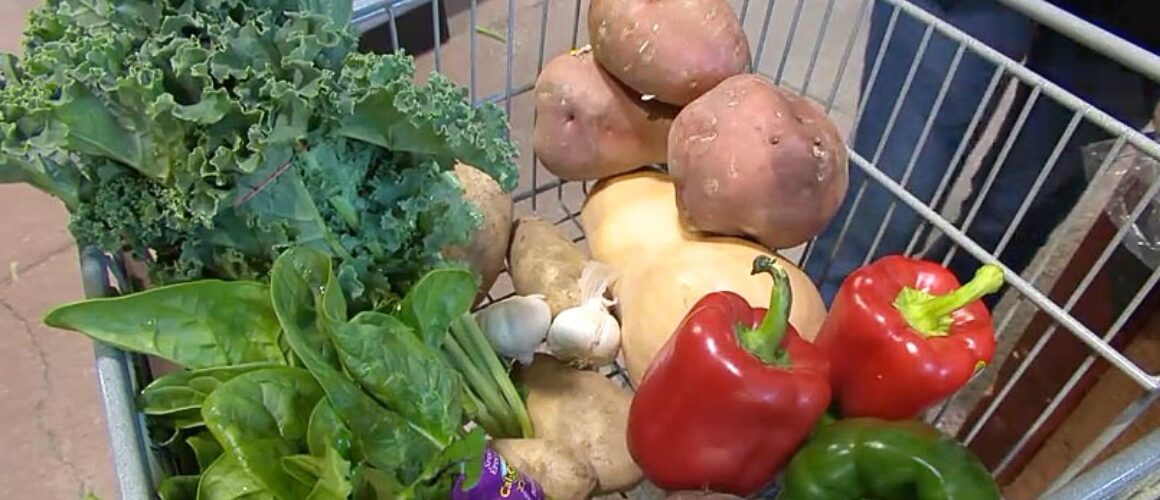Similac recently announced that they will offer a GMO-free baby formula exclusively at Target. Chipotle also announced that they were dumping GMOs. Target announced that it is expanding its offering of natural and organic products.
Demand for non-GMO and organic food is expanding across all age groups and demographics.
It speaks to the changing landscape of the health of families and the health of our children.
Similac, Target and others announced these changes in response to consumer demand.
The landscape of childhood has changed. No longer are our children guaranteed a childhood free from diabetes, obesity or food allergies, and parents are standing on the front line.
Parents are looking for food that is free from artificial ingredients: artificial dyes, artificial growth hormones and the newly patented genetically engineered ingredients, engineered to be “Roundup Read” and resistant to a weed killer that contains glyphosate, an ingredient that the World Health Organization recently declared a “probably carcinogen.”
The escalating rates of childhood cancers, increasing diagnoses for conditions like autism and food allergies, and the rates of obesity and diabetes have earned this generation of children the title of “Generation Rx”. They are the first generation of kids expected to have a shorter lifespan than their parents.
According to the Centers for Disease Control, cancer is the leading cause of death by disease in children under the age of 15. The journal Pediatrics has reported that 15% of American girls are expected to begin puberty by the age of 7 (with the number closer to 25% for African American girls) and a growing number of American children struggle with obesity. On top of that, the rate for having food allergies is 59% higher for obese children, with the Centers for Disease Control reporting a 265% increase in hospitalizations related to food allergic reactions. And while not all of those hospitalizations are for our children, what is becoming increasingly obvious is that the health of our children is under siege.
U.S.-born children have a 34.5 percent chance of developing asthma, hay fever, eczema and food allergies, compared with just 20.3 percent of foreign-born children. In addition, children born outside the U.S. but then moved here were more likely to develop allergies the longer they lived in the country.
When I shared this data with a journalist, she was speechless, and I found myself again wondering: What have our children possibly done to deserve this? And more importantly, what can we do to protect them?
This changing landscape of childhood is changing the face of American families and our economy. We already spend almost 18 cents of every dollar on health care, managing disease. The pharmaceutical companies can’t keep up with demand, and now there are shortages for drugs used to treat cancers and ADHD.
But more often than not, the solution is not found in the medicine cabinet, but in the kitchen, and parents are doing everything they can to protect the health of their children.
Writers that are fortunate enough to not be dealing with conditions like autism, food allergies and pediatric cancer have begun to refer to these parents as the “tyranny of the organic mommy mafia.” Tyranny is a strong word. Merriam Webster defines it as “cruel and unfair treatment by people with power over others.”
Parents that do unexpectedly find themselves on unfamiliar territory are doing everything they can to protect the health of their children. There are others who are fortunate to not know what it feels like to watch your son have a blood disease that literally renders him unable to walk or to have a child suddenly stop talking or to have something as simple as a sandwich be so life threatening. No parent would choose to have these things happen to their child. No parent would choose autism. No parent would choose food allergies and the burden it places on a family every day.
But too many of us now find ourselves staring down these conditions. Food allergies affect 1 in 13 children in the U.S., autism affects 1 in 68, asthma 1 in 10 children, and cancer is impacting 41% of Americans. The conditions themselves can at times feel cruel and tyrannical.
And as scientific evidence continues to mount, courageously presented by doctors like Mark Hyman, MD, in his groundbreaking book, The Blood Sugar Solution, and pediatric specialists like Dr. Joel Fuhrman and Dr. Alan Greene, about the role that diet and nutrition plays in the health of our children, parents are beginning to take notice. Doctors are taking notice, too. M.D. Anderson researchers have even gone so far as to name it, “the doorknob syndrome.” When patients are standing in their offices, having been diagnosed with cancer and given the details about what lies ahead, as they turn to leave the office, with their hand on the doorknob, will turn back in towards the doctor and ask, “Is there anything that I can be doing differently with what I eat?”
The President’s Cancer Panel, formed under the Bush administration and releasing its report under the Obama administration, says yes. The report, Reducing Environmental Cancer Risk, encourages Americans to reduce exposure to certain ingredients now being used in and on our food supply and to eat organic when you can, especially if you have children.
And as we introduce new foods that are nutrient-dense ( full of vitamins and minerals) and try to reduce our loved ones’ exposure to the foods that are nutrient-void (packing mostly artificial ingredients that have been synthetically engineered in laboratories), we are realizing that we have the power to affect remarkable change in the health of our children and families, so that together, we can stem this tide of children flowing into pediatric hospitals being built across the country.
Diet is a lot like religion, it is not one size fits all. And learning that our food contains ingredients for which no long term human health studies have been conducted can cause heartache, a heartache deeply felt by a mother of a child with autism or allergies, as these conditions can so dominate the life of a family, impact its freedom and flexibility.
To then learn that other countries have not allowed these new ingredients, introduced into our food supply in the last ten to twenty years, because of this lack of evidence of safety can then trigger more than just an adjustment in what you put into your shopping cart, it can change how you view our system.
It takes tremendous courage and strength to show up every day when you have a child with autism, allergies or cancer. It is not something anyone would wish for. It is something that writers, fortunate enough to not experience these conditions, could not possibly understand. It is far easier to shoot the messenger.
How do I know? Because I did the same until the epidemics were too close and too destabilizing to dismiss.
If our current spending on health care and disease management is a leading economic indicator, then exercising precaution, the way we do when we buckle our children into a car seat or strap a helmet on their heads, is one of the most conservative things that we could be doing.
From Kroger to Wal Mart, companies are recognizing this shift in consumer demand and responding to this food awakening. They are expanding their offerings so that moms in all socioeconomic categories have access to organic food at an affordable price. They recognize that moms are not trying to create problems, they are simply looking for solutions, standing in the grocery store aisles, holding onto the hand of a child with allergies or autism or diabetes, knowing that they represent the future of our country – our future soldiers, entrepreneurs, educators and innovators.
If you think about it, there is nothing more conservative or patriotic that we could be doing.
Sources:
http://www.sciencedaily.com/releases/2009/05/090504122102.htm
http://pgpf.org/Chart-Archive/0006_health-care-oecd
http://www.webmd.com/add-adhd/news/20120103/adhd-drug-shortages-why
http://deainfo.nci.nih.gov/advisory/pcp/annualReports/pcp08-09rpt/PCP_Report_08-09_508.pdf




